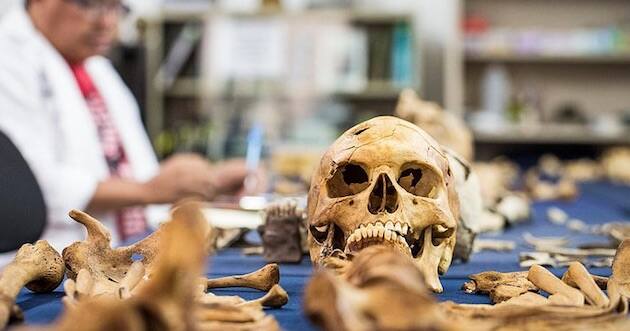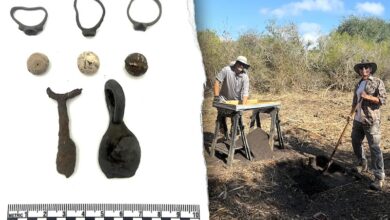War on science: Anthropologists pressured to stop labeling remains ‘male’ or ‘female’

Anthropologists are being pressured to stop identifying human remains as “male” or “female.” LGBT activists say scientists can not know how ancient individuals “identified” themselves.
Emma Palladino used her Twitter account earlier this month to point out that transgender individuals “can’t escape” their sex, not because it’s physically impossible to change one’s sex, but because archaeologists who find their bones one day “will assign you the same gender as you had at birth.”
“My trans+non-binary friends: You might know the argument that the archaeologists who find your bones one day will assign you the same gender as you had at birth, so regardless of whether you transition, you can’t escape your assigned sex,” Palladino, who is a Canadian Master’s degree candidate, wrote in a tweet. Amazingly, the suggestion to alter the science of anthropology has beeen retreated over 10,000 times and acrued more than 59,000 likes.
Labelling remains “male” or “female” is rarely the end goal of any excavation, anyway. The “bioarchaeology of the individual” is what we aim for, factoring in absolutely everything we discover about a person into a nuanced and open-ended biography of their life. 5/
— Emma Palladino🏺 (@EmmaPalladino) July 4, 2022
In a follow-up tweet, Palladino said, “gender + queer archaeologists and scholars have been working for decades to unpack assumptions that archaeologists make about gender and identity, both today and in the past.”
“No field is perfect, and there’s absolutely more work to be done, but by and large, archaeologists are acutely aware of how culturally and spatially relative the concepts of sex, gender, and identity are,” she added.
She has since taken her account private.
“There’s absolutely more work to be done, and more education, empathy, and sensitivity is very much required in the field of archaeology,” the student continued.
Palladino is not alone in this line of thinking. There is now a group called the Trans Doe Task Force, which seeks to “explore ways in which current standards in forensic human identification do a disservice to people who do not clearly fit the gender binary.”
“We propose a gender-expansive approach to human identification by combing missing and unidentified databases looking for contextual clues such as decedents wearing clothing culturally coded to a gender other than their assigned sex,” the group’s mission statement reads.
Earlier this year, University of Kansas associate professor Jennifer Raff published “Origin: A Genetic History of the Americas,” in which she argued that there are “no neat divisions between physically or genetically ‘male’ or ‘female’ individuals.”
As scientists examine possible evidence of female hunters at an ancient site in Peru, Raff suggests that we have no idea whether a 9,000-year-old biologically female Peruvian hunter had considered herself female, and claims that the concept of only being male or female was “imposed by Christian colonizers.”
It is not believed that the gender campaign has forced changes but many fear if successful, it could hamper research. Others fear it would complicate
–News services and Breitbart.com







